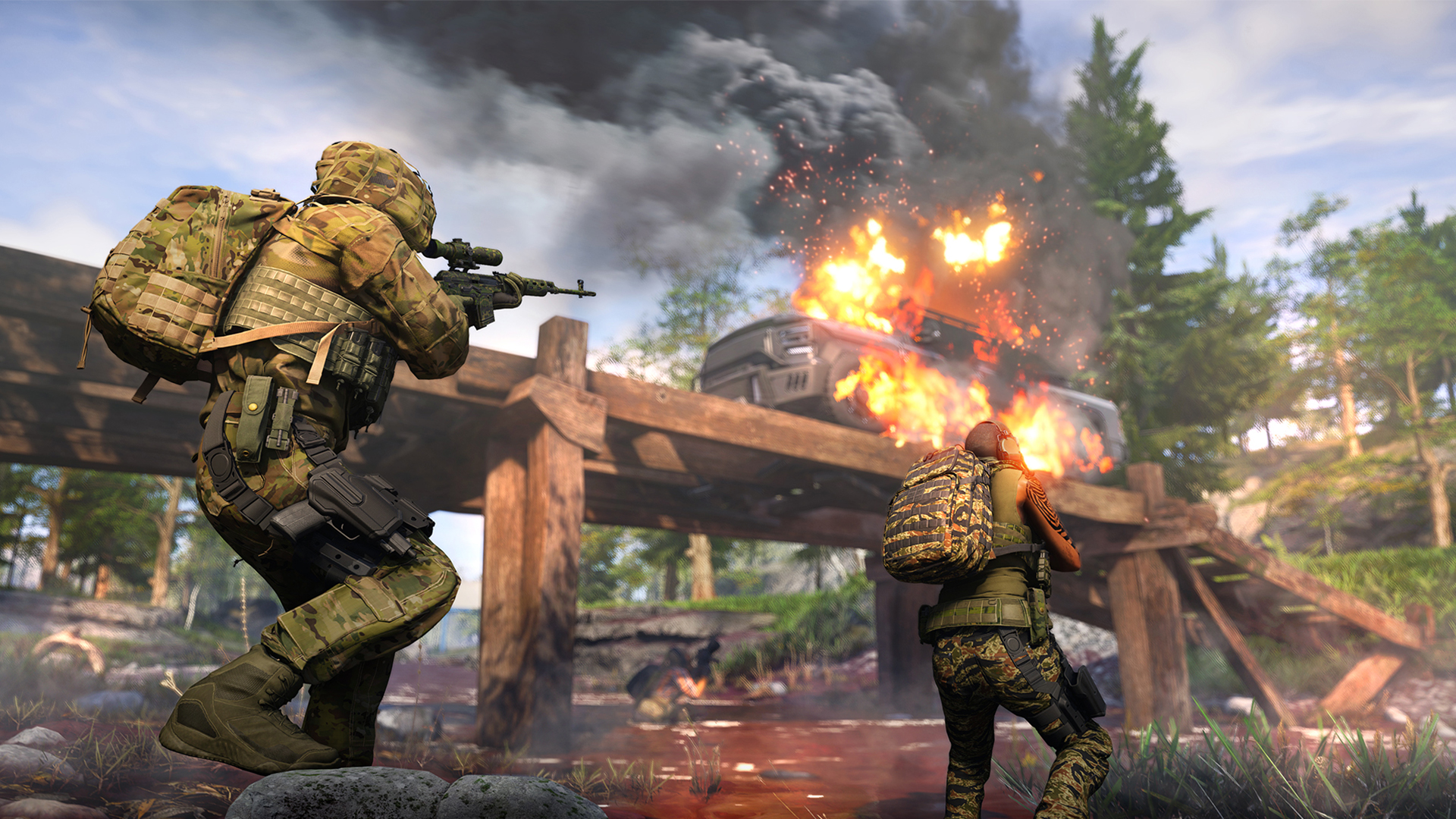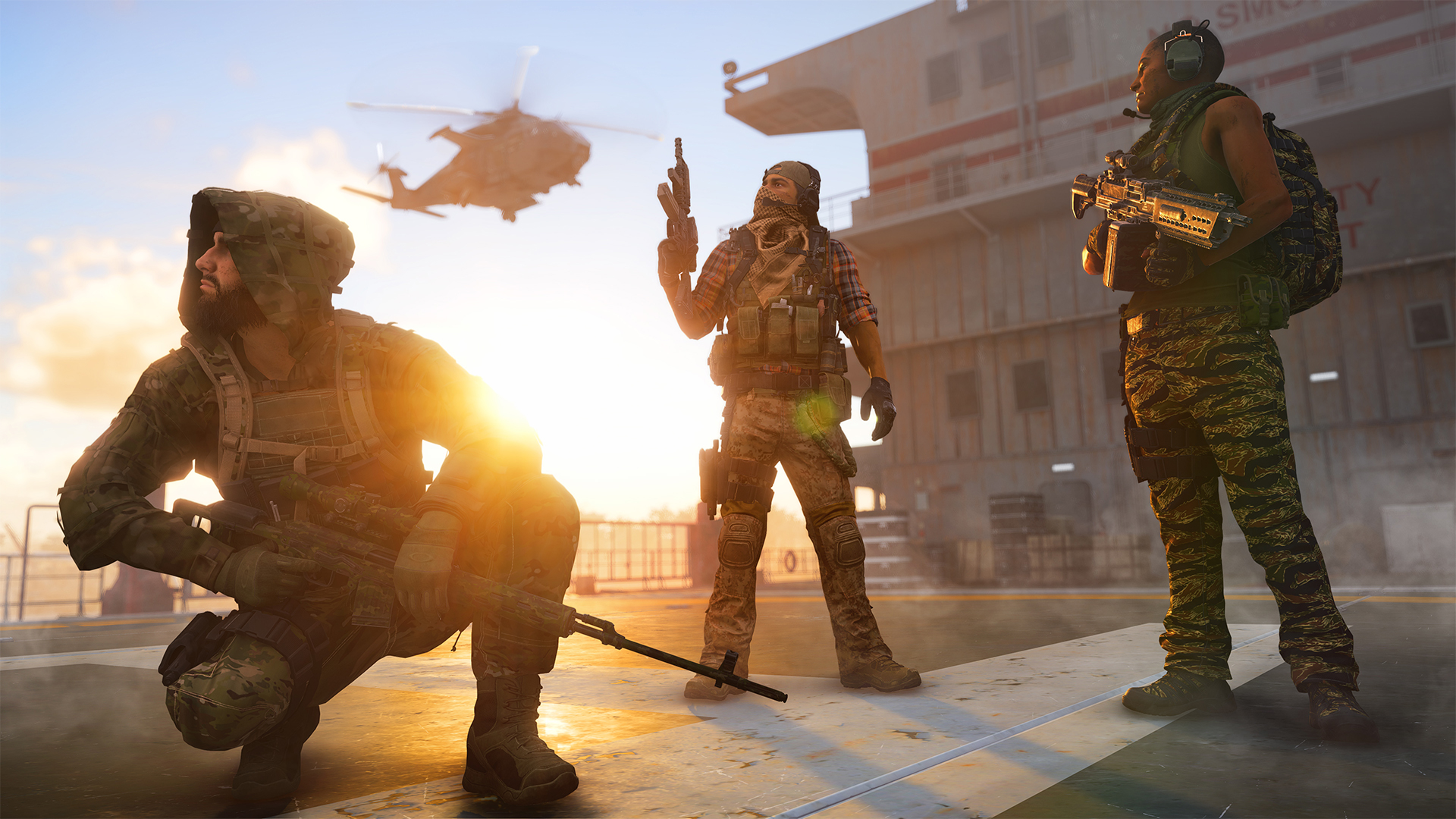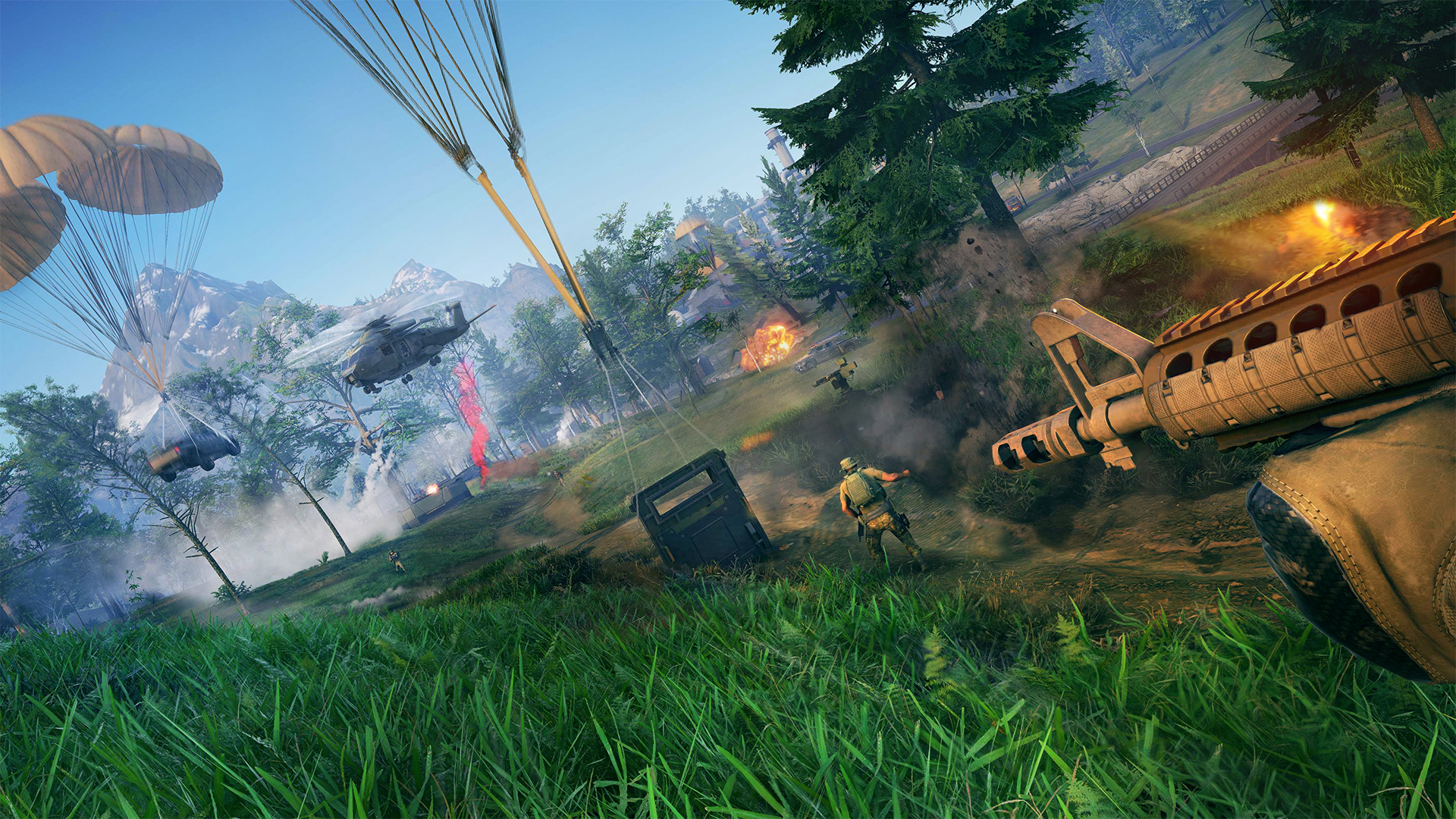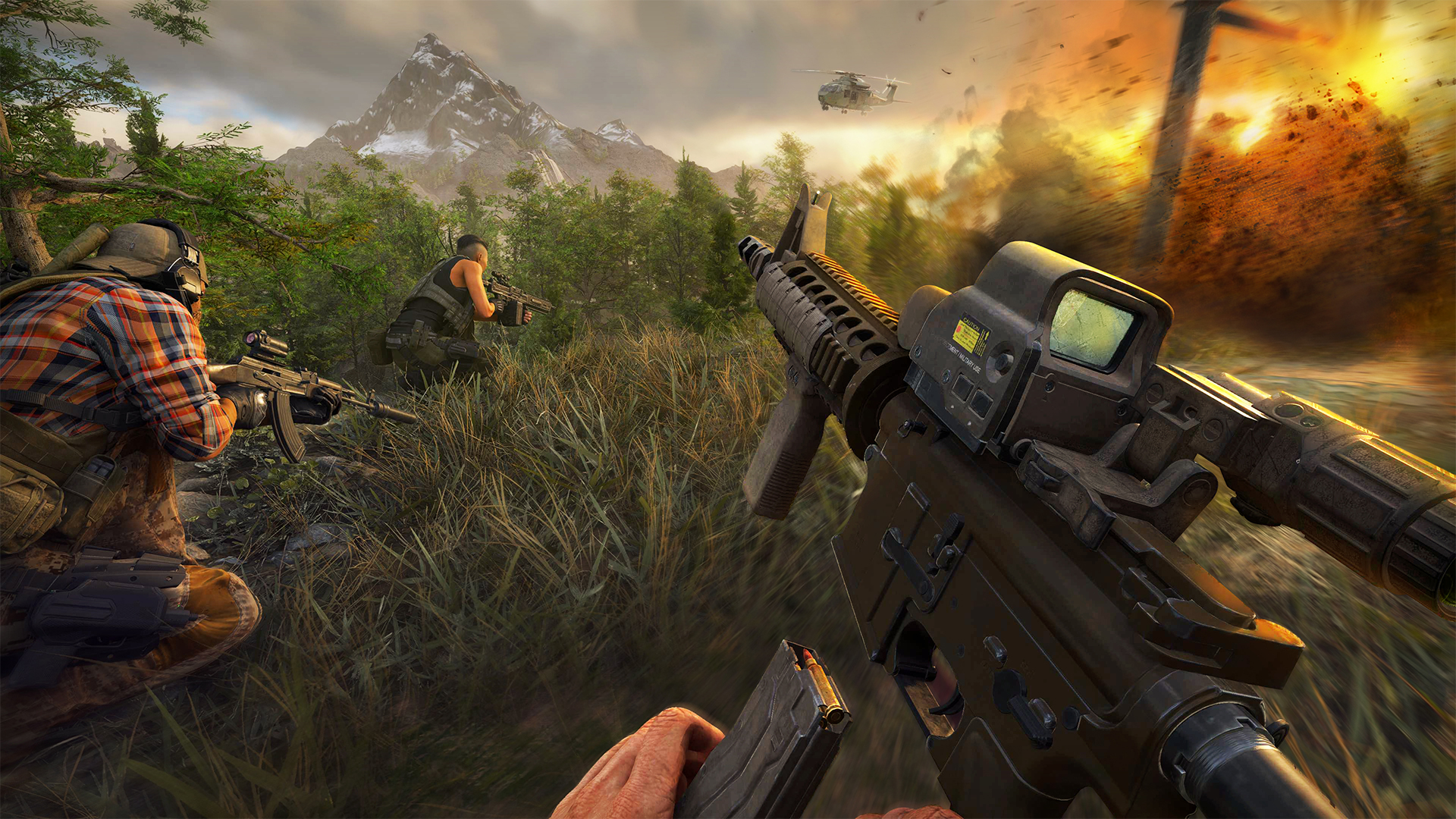Ghost Recon Frontline borrows from battle royale with an authentic tactical military twist
We chat with Ubisoft Bucharest about the developer’s slant on the genre zeitgeist

Ghost Recon Frontline is not a battle royale game. Sure, it shares similar traits – up to 102 players, split into teams of three, are dropped into the same contained, multi-biome map wherein they’ll fight to the death – but it is not a battle royale game. That’s according to Ubisoft Bucharest, the team who has been working on the military shooter series’ latest venture for the last three years. Frontline is also free-to-play and will run with seasonal updates. But the developer is clear on what stands its new project apart from the likes of Fortnite, PUBG, and the myriad other games born from the genre zeitgeist that’s evolved over the last few years.
“It’s very important to understand how we are different,” says Ghost Recon Frontline’s brand director Stefan Marinescu. “Battle royale is a genre. It’s not like we're very far away from it, but we are different in many ways. We are free to play, indeed, but we are a tactical, action, massive PvP shooter, that's what we want to call it. It's our own, very personal take on this massive PvP shooting scene that’s done in the Ghost Recon universe.”
“We always wanted to have something different. We didn't want to come to the market with the same thing as everyone else. It was always about our vision of it. Within the team, we are gamers, and we are all shooter gamers. I was once semi-pro in Counter-Strike, and a lot of other people on the team have played a lot of other shooter games. We have this experience, and Frontline is our own very personal take on the genre, and what an authentic, massive military shooter would ideally be as per our vision. That is why we did not go for the same recipe."
Choice worlds

"Once Extraction is activated, you have two minutes in which you have to defend the extraction point – at which point you become visible. Everyone that is still alive in the game will see that you’ve called for an extraction, and they’ll want to stop you from getting off the island."
Stefan Marinescu, brand director
In practice, the differences between Ghost Recon Frontline’s approach to battle royale and the “same recipe” found in other games, as Marinescu puts it, are subtle but distinct. During the short, hands-off presentation I'm shown, Frontline reflects the close attention to detail and authenticity we’ve grown to expect from the Ghost Recon series, but with a twist.
Here, players fill the shoes of Contractors, each of who fits a specific class that brings their own expertise to battle. During the Insertion phase, players will choose their operatives and devise a plan of attack with their colleagues in teams of three. You’ll then be deployed into the game’s Drakemoor Island setting, in matches said to last around 20 minutes, where you’ll hunt for objectives out in the wild, and gather intel by hacking drones and investigating outposts. You’ll ultimately call for Extraction – at which point every other player in the match is alerted to your presence. From there, it’s two minutes of chaos as you defend your intel with everything you’ve got, before, all going to plan, you escape with your classified info and your lives intact.
Through all of this, Frontline is a last-person-standing affair much like its established battle royale cousins, but its scope for deception and trickery sounds exciting. Maybe you’ll take to the field all-guns-blazing, gather as much intel as you can, and get out of there in record time. Perhaps you’ll hide in the long grass, let another team do all the hard work, and then pounce at the last minute. Or maybe you’ll join forces with another squad on the fly, form a fearless cabal of six, command and conquer with a numerical advantage, and then share the spoils at the other end.

I suspect all will often not go to plan as teams attempt to outsmart each other in the moment, and I’m already picturing myself at the latter end of the latter scenario, turning my gun on my peers in a moment of agonizing betrayal that’d make Fredo Corleone blush. All’s fair in love and war, and all that.
Weekly digests, tales from the communities you love, and more
“Every player on the map can see the intel spots via their own drones, but they cannot see each other,” continues Marinescu. “This means that, if you choose to gather intel at a specific point on the map, you may converge with other teams. You can’t know for sure until you get there, but this is a risk you have to calculate and take into account. Once you have enough intel you can extract, and that's when things can go a little bit wild.”
“Once Extraction is activated, you have two minutes in which you have to defend the extraction point – at which point you become visible. Everyone that is still alive in the game will see that you’ve called for an extraction, and they’ll want to stop you from getting off the island. It’s a risk versus reward type of thing that determines the winner of a game, and we have two teams that can extract. There will be a difference, even if both teams are winners. The people that will get first place will get better rewards, of course, this doesn't mean that the second team doesn't get good rewards but there is a difference between them.”
Custom fitted

"Frontline is, under no circumstance, a pay-to-win game. Everything in the Battle Pass is strictly cosmetic, it doesn't influence the game in any way."
Stefan Marinescu, brand director
At launch, Ghost Recon Frontline will be available on PC via Uplay, old and current-generation consoles, and Stadia – and will be cross-platform across the lot. As a free-to-play game, Marinescu says the thinking here is simple: he and his team want as many people to play Frontline as possible, on whatever platforms they own. Marinescu also stresses that Frontline is not a sequel or an off-shoot mode of the main Ghost Recon series, but is very much a standalone game – one which follows the story of a former Ghost named Roy who’s out to expose the rogue trading of a mining company on the game’s island playground.
Players will primarily do so in the aforementioned 102-player Expedition mode, but can also embark in a secondary game mode named Control, which sees players lock horns in shorter, less hectic bouts of 9v9. Like many free-to-play games, cosmetics will play a big part of Frontline’s overarching make-up – both at launch and over time, as the military shooter grows on a seasonal basis. To this end, Marinescu says aesthetic upgrades will only ever be considered if they maintain the high standards of authenticity Ghost Recon fans enjoy, while also stressing cosmetic items will never give players a leg-up on the battlefield.
“Players can expect a lot of cosmetics, and all of them will be grounded in today's reality,” says Marinescu. “We are not building a fantasy game, we are building an authentic military game. This is why we’re sticking to the Ghost Recon pillar so closely. For all Ghost Recon fans, it is important to know that our entire arsenal of weapons, of skins, of everything is anchored in reality – and that’s today’s reality, not the future’s. We will have a lot of cosmetic things within the Battle Pass.”
“One thing that I want to mention, though, is that the game is under no circumstance a pay-to-win game. Everything in the Battle Pass is strictly cosmetic, it doesn't influence the game in any way. So yes, we are very happy with where we are in that we think the players will really enjoy the military authenticity type of customization that we prepared for them.”
Ubisoft will host a European closed PC test event for Ghost Recon Frontline on Thursday, October 14, 2021, with consoles and other regions planned for later dates.

Joe Donnelly is a sports editor from Glasgow and former features editor at GamesRadar+. A mental health advocate, Joe has written about video games and mental health for The Guardian, New Statesman, VICE, PC Gamer and many more, and believes the interactive nature of video games makes them uniquely placed to educate and inform. His book Checkpoint considers the complex intersections of video games and mental health, and was shortlisted for Scotland's National Book of the Year for non-fiction in 2021. As familiar with the streets of Los Santos as he is the west of Scotland, Joe can often be found living his best and worst lives in GTA Online and its PC role-playing scene.


